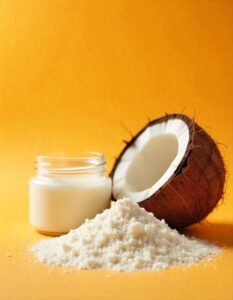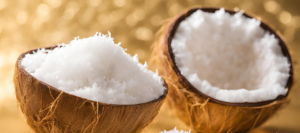The Ultimate Guide to Coconut Water: Unveiling its Benefits and More

Coconut water is not just a refreshing tropical drink; it is a powerhouse of nutrients that offer a multitude of health benefits. For centuries, people in tropical regions have been enjoying this delicious and hydrating drink. In recent years, it has gained popularity worldwide as a natural alternative to sports drinks and sodas. In this ultimate guide to coconut water, we will uncover its benefits, how it is extracted, and why it has become a global favorite.
What is Coconut Water?
Coconut water is the clear liquid found inside young, green coconuts. It is often referred to as the “liquid of life” due to its rich nutritional profile and its ability to hydrate the body. This natural beverage is low in calories, fat-free, and cholesterol-free, making it a great choice for those who are health-conscious.
Nutritional Profile
Coconut water is packed with essential nutrients that are vital for maintaining good health. Here is a breakdown of its nutritional composition:
- Electrolytes: Coconut water is a natural source of electrolytes, including potassium, sodium, magnesium, calcium, and phosphorus. These minerals help regulate fluid balance, nerve function, and muscle contraction in the body.
- Vitamins: It contains vitamins such as vitamin C, vitamin B-complex, and vitamin A, which support immune function, enhance energy production, and promote healthy skin.
- Antioxidants: Coconut water is rich in antioxidants, such as cytokinins, which help fight oxidative stress, slow down aging, and reduce the risk of chronic diseases.
- Amino Acids: It also contains essential amino acids that are required for protein synthesis and optimal functioning of the body.
How is Coconut Water Extracted?
To obtain coconut water, young green coconuts are harvested from coconut palm trees. The coconuts are carefully selected and cracked open to reveal the liquid inside. The water is then extracted and packaged either in its natural form or pasteurized for longer shelf life. It is important to note that fresh and natural coconut water offers the maximum health benefits compared to packaged alternatives, which may contain added sugars or preservatives.
Health Benefits of Coconut Water
Coconut water offers an array of health benefits that make it a popular choice among health enthusiasts. Let’s take a closer look at some of its remarkable advantages:
1. Hydration
Coconut water is an excellent natural hydrator, especially during hot summer months or after intense physical activity. It replenishes the body’s electrolytes and provides essential minerals lost through sweat, helping to maintain fluid balance and prevent dehydration.
2. Electrolyte Replenishment
Due to its rich electrolyte content, coconut water is a natural electrolyte drink that can help restore and replenish the body’s electrolyte levels. This makes it an ideal choice for athletes, those suffering from electrolyte imbalances, or anyone looking for a natural alternative to commercial sports drinks.
3. Digestive Health
Coconut water contains a high concentration of fiber, which aids in digestion, prevents constipation, and promotes a healthy digestive system. It also acts as a natural remedy for acid reflux and helps soothe an upset stomach.
4. Weight Management
With its low calorie and natural sugar content, coconut water is a healthier alternative to sugary beverages. It helps keep you feeling full, thereby reducing cravings and supporting weight management goals.
5. Skin Health
The hydrating properties of coconut water not only benefit the body internally but also contribute to healthy skin. Regular consumption or use of coconut water can help hydrate the skin, reduce acne, and promote a youthful complexion.
6. Cardiovascular Health
Studies have shown that coconut water can help lower blood pressure and cholesterol levels, reducing the risk of heart disease. Its potassium content is particularly beneficial for maintaining heart health.
How to Enjoy Coconut Water
Coconut water is best enjoyed chilled and straight from the coconut itself. However, if fresh coconuts are not readily available, natural coconut water can be found in supermarkets and health food stores. When buying packaged coconut water, check the label to ensure it is 100% pure and free from added sugars or artificial ingredients. Another option is to drink coconut water from mature coconuts, which have a slightly different taste but still offer many health benefits.
DIY Coconut Water Recipes
For those who enjoy getting creative in the kitchen, coconut water can be used as a base for delicious and healthy beverages. Here are a few recipes to try:
- Coconut Water Smoothie: Blend coconut water with your favorite fruits, such as berries or tropical fruits, for a refreshing smoothie.
- Coconut Water Lemonade: Mix coconut water with freshly squeezed lemon juice and a touch of natural sweetener for a tangy and rejuvenating drink.
- Coconut Water Mocktail: Combine coconut water with mint leaves, lime juice, and a splash of sparkling water for a refreshing and alcohol-free mocktail.
Conclusion
Coconut water is not just a trendy beverage; it is a natural and nutritious way to quench your thirst and boost your health. Whether you are looking for a refreshing post-workout drink, a natural hydrator, or a delicious alternative to sugary beverages, coconut water has got you covered. With its rich nutritional profile and a myriad of health benefits, it’s no wonder coconut water has become a global favorite. So, grab a coconut and savor the liquid of life!
For more information about mature coconuts, coconut byproducts, and exporting coconuts from India, visit grofarm ug.
“Coconut water is nature’s sports drink, providing hydration, electrolytes, and essential nutrients in one delicious package.” – grofarm ug
This blog post is designed to provide general information about the topic. Consult your healthcare professional or nutritionist for personalized advice.



